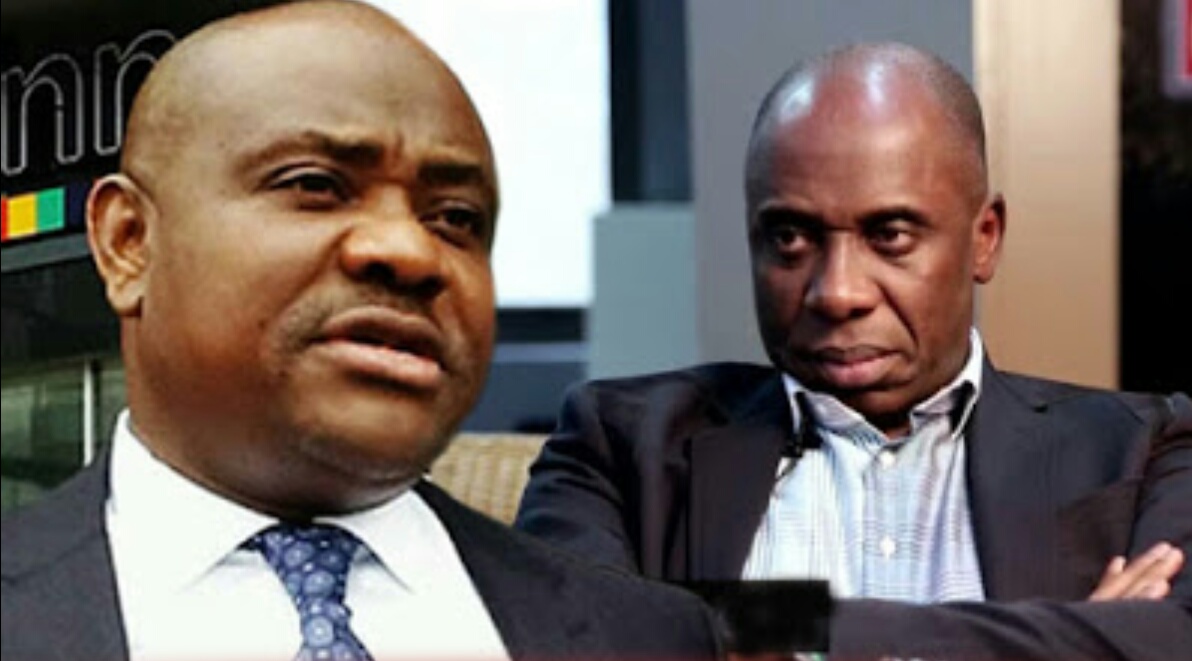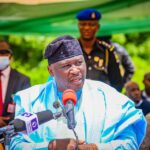Turbulent as Rivers State was during the last gubernatorial polls, the two principal gladiators namely incumbent governor Nyesom Wike and (by proxy) Minister of Transportation Rotimi Amaechi, had offered the people of the state happy-ending homilies, which many Nigerians had considered as welcome. Wike of the PDP was contesting for a second term in office as governor of the state, while his nemesis Amaechi of the APC, sponsored a surrogate – Biokpomabo Awara from another political party – the African Alliance Congress (AAC) to contest the gubernatorial polls in the state and thereby try to up-stage Wike. In the end Wike won his second term bid while Amaechi and his surrogate Awara were left to bite the dust, in what remains perhaps one of the worst faces of violence-prone electoral exercises, both in the River State and the country at large.
Among the many lives that were lost during the sad exercise, two topical ones were Mrs Ibisaki Amachree, a secondary school teacher, and Dr Ferry Gberigbe, a lecturer at the Ken Saro Wiwa Polytechnic Bori River State. Both of them were innocent civilians who were going about their designated electoral duties when they were shot. Typical of the short memory to which many Nigerians consign not a few landmark developments in their unending rat race to survive the harsh operating conditions of living in the country, much of the losses as well as the casualties from that electoral dispensation now belong to the ages, only remembered by their close families and other immediate survivors.
Meanwhile, in an apparent response that was driven by the dampened mood of the entire country over the outrage in Rivers State, Wike as governor called on residents and stakeholders in the state, to leave the past behind and embrace peaceful co-existence. In a similar fashion Amaechi has also offered a peace homily, with some members of his political camp accepting to work with their erstwhile political antagonist – Wike.
However even as both potentates have rightly offered homilies indicative of their mutual desire to foster peace in the state, the onus now lies on their walking their talk with verifiable, concrete measures which will prove the merit of their commitment to their pronouncements. In other words, just calling for peace with the lips is not enough to effect the restoration of the state to its normal peaceful condition. Rather what matters now is what each of them is bringing to the table to promote a return of sustainable peace, literally speaking. Just as no serious person goes to a negotiating table with an empty agenda, so the duo need to come up with strategic reliefs that will calm frayed nerves and assuage aggrieved victims of the upheavals, which came with the conduct of the polls. And so far that has not happened.
While it may be tempting for them and their political camps to pay scant premium to the foregoing criterion for rebuilding peace in the Rivers State, such a slip has implications and unintended consequences, including a disconnect with the public they are lifted to serve. For example, in the case of Wike, he as an incumbent will be ill-advised to assume that with the victory in his second term bid, there is no more need to be sensitive to the yearnings of the people as is common with many typical second term governors in Nigeria. In any case there are several of such leaders who played the ignominious role of messing up with their second term mandates, and the opprobrium that trails them after office. Incidentally the wise ones among them still know that the second term is when legacies that will survive beyond their tenures – either positive or otherwise are built, and therefore act accordingly.
That is why for Wike, the second term provides him the opportunity to be his very best in governance, especially when his first tenure is viewed against the backdrop of its rather bumpy start and rather eventful keel. As is public knowledge, his first term commenced on a rocky note, including his removal by a court order and return to office through a re-run election. In that context therefore, the people of the state have not enjoyed the best face of his ascendancy to office. And given his new charge to the state for post-election peace, the onus falls on him to lead the way in that direction.
Invariably therefore, a peace loving Wike will need to go back to the drawing board, even if it is only for the purpose of ensuring that whatever was missing in the first tenure will be resolved in the second. A starting point is the fostering of a new interface with the various stakeholders in democratic governance of the state. These include in one vein, the federal government and the local government councils in the state, while in the other vein are the Rivers State House of Assembly and the independent press, both of whom are guided by the legitimate aspirations of the governed. This complement of positives comprises what he should be bringing to the table in his second term.
Meanwhile the case of Amaechi, with respect to coming clean on his call for peace after the political storm during the polls, remains more profound, specifically due to his reported role in such, which many in Rivers State take strong exceptions to. Incidentally therefore, his call for peace is coming against a poor image of him being demonized, whether rightly or otherwise, as a key causative factor of a six-year old political crisis which has rocked Rivers State since from the later days of his second term as a two-time governor of the state. Many believe that given his obsession with a self-serving agenda which led to the avoidable exclusion of his political party – the APC from contesting for any office during the last general polls, his circumstances fall into the mold of a leader who misread the political dynamics of the time, and led his people astray.
His new song of peaceful co-existence is therefore falling on an audience that is still uneasy with his antecedents and are wondering over his real motivations. However, a few political pundits easily argue that just as his self-serving proclivities dictated his earlier handling of the affair of the APC in the Rivers State, his call for peace at this time is aimed at gaining a critical soft landing in the state for furtherance of his political ventures. Unmistakably one of these is his likely aspiration to be returned as Minister in President Muhamadu Buhari’s second term cabinet. And the success of such a venture depends on the role to be played by all three Senators from the state that will be in the Ninth National Assembly, and who are all of the rival PDP.
What hurdle these will prove for him during the Senate screening of ministers if he is eventually picked by Buhari, qualifies as the beginning of wisdom for Amaechi, and may be the driver for his new found peace campaign.
He can however still prove skeptics wrong, after all.

 Join Daily Trust WhatsApp Community For Quick Access To News and Happenings Around You.
Join Daily Trust WhatsApp Community For Quick Access To News and Happenings Around You.


